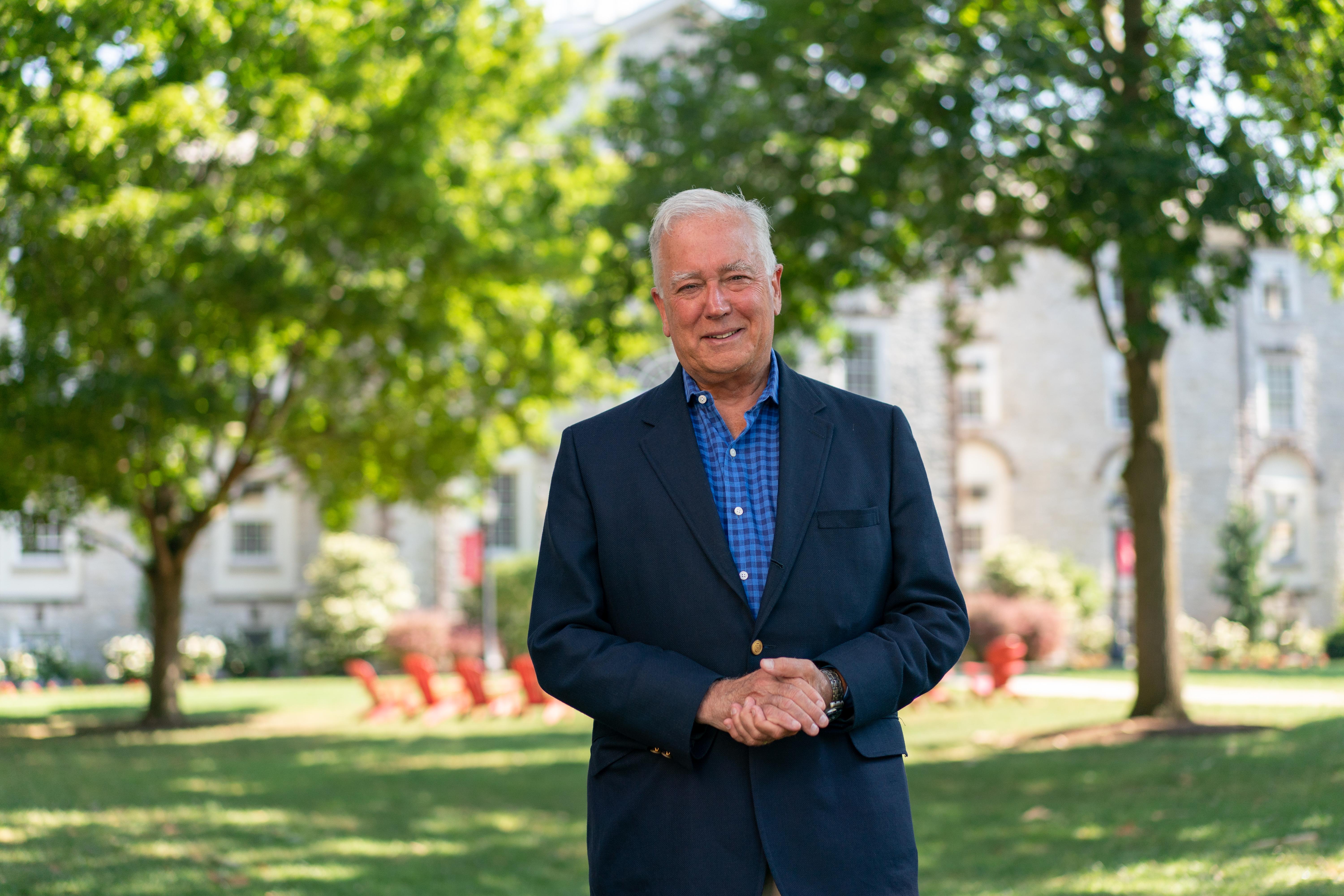Dickinson President John E. Jones III ’77, P’11 Joins Bipartisan Group Filing on Consequential Supreme Court Case

President John E. Jones III '77, P'11 on the Academic Quad. Photo by Dan Loh.
Case involves the so-called 'independent state legislature' theory and could impact elections
by Craig Layne
U.S. Supreme Court watchers have signaled Moore v. Harper could be one of the most consequential cases before the justices this term, with potential impact on future elections, including presidential contests. At its core, the case looks at whether state legislatures have unchecked power over federal elections. That’s why Dickinson President John E. Jones III ’77, P’11, a former federal judge himself, has joined a bipartisan group of Pennsylvania public officials, including former Pennsylvania Gov. Tom Corbett, other former federal judges and former federal prosecutors encouraging the court to reject that theory.
The group has filed an amicus curae (Latin for “friend of the court”) brief, a document that offers information with bearing on the case but is not from a party directly involved in it.
“This is the first time I’ve been an amici, and I’m proud to join this fight,” said President Jones. “If wrongly decided, this case could be a dangerous turning point allowing state legislatures to effectively tip the scale and influence the outcome of elections without any checks and balances.”
At the heart of Moore is the North Carolina Republican-led legislature’s argument that the so-called “independent state legislature” theory allows state lawmakers to bypass election-related rulings by the state supreme court. The theory contends state legislatures control over federal elections cannot be restricted by state constitutions, state courts nor governors. In their brief, filed with the assistance of the nonpartisan Institute for Constitutional Advocacy and Protection at the Georgetown University Law Center, President Jones and the other amici outline several reasons against this theory.
The case is scheduled for oral arguments before the U.S. Supreme Court on December 7.
TAKE THE NEXT STEPS
Published October 31, 2022